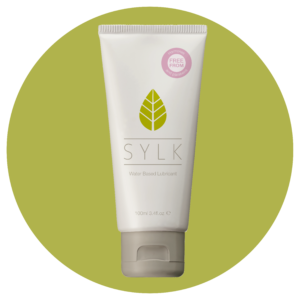Having a hysterectomy
There are many reasons women may undergo hysterectomy. Whether it be menorrhagia (heavy, painful periods), endometriosis, trauma, or cancer, the result is the same for everyone; the immediate onset of the menopause. It’s a major operation that will usually entail the full removal of the uterus and the ovaries, though sometimes this will only be partial. After the operation, a woman will no longer be able to reproduce, and will usually experience menopausal symptoms such as hot flushes, night sweats, anxiety and insomnia.
Vaginal dryness is also an extremely common symptom, experienced by almost 60% of women after menopause. It occurs because the body is no longer able to produce oestrogen. Vaginal dryness will often feel itchy and sore, leading to day to day discomfort, and friction and pain during sex.
What can I do?
So how best to combat this nasty issue? Sadly, for many women, vaginal dryness is the one long lasting symptom that just won’t go away. HRT is often prescribed for women who have undergone a hysterectomy. This should help the underlying issue by replacing oestrogen in the body. However some women may not be able to use HRT, for example some breast cancer patients. Indeed, some women just don’t want to! Whether HRT is used should be considered carefully following a doctor’s guidelines. Find out more about HRT here.
But there’s a lot more you can do too.
The natural approach

While these options may help in the longer term, using a natural vaginal lubricant will usually offer much more immediate relief from vaginal dryness. Regular use may keep you more comfortable day to day. Applying a few drops with your fingertips after bath or shower should provide instant relief from the discomfort of vaginal dryness, leaving you feeling more comfortable, less itchy, and ready to go about your day.
Vaginal dryness and sex
A lubricant is also recommended for sex if you’re experiencing vaginal dryness, or you may find it sore and uncomfortable. Sex can have the added bonus of helping to combat dryness, as it stimulates the glands around the cervix to produce moisture. It will also help retain the elasticity of the vaginal wall. A win win really, but it’s important to ensure a full recovery from surgery before any sexual or otherwise strenuous activity. Here are the NHS guidelines for more information, who recommend at least 4-6 weeks.
A bit of “you time”

Some women can feel low and emotional after a hysterectomy. There’s a fantastic website called The Hysterectomy Association. They provide a wealth of information and support services, including user forums, which may be helpful for women recovering. Find out more here.





Pingback: Who we are · Sylk Natural Intimate Moisturiser
Pingback: A guide to vaginal dryness, by Senior Menopause Nurse, Kathy Abernathy · Sylk Natural Intimate Moisturiser
Pingback: Research · Sylk Natural Intimate Moisturiser
Pingback: Menopause dryness · Sylk Natural Intimate Moisturiser
Pingback: Why is Sylk best? · Sylk Natural Intimate Moisturiser
Pingback: How Sylk is made · Sylk Natural Intimate Moisturiser